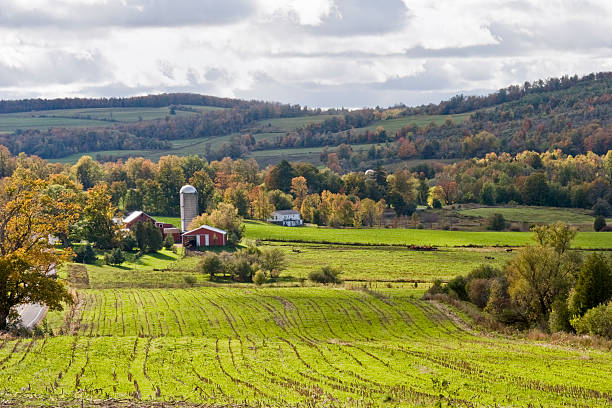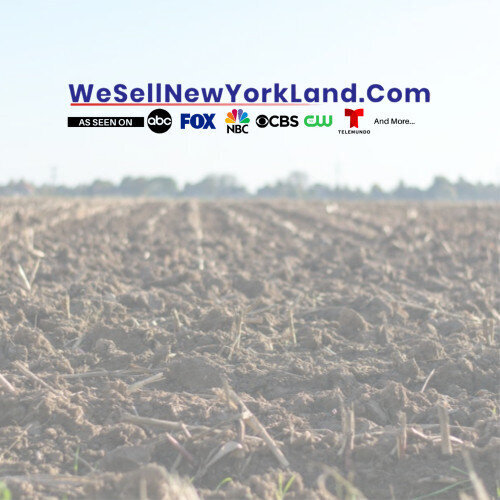
New York’s agriculture landscape is undergoing a transformative shift with the implementation of the Beginning Farmer and Socially/Economically Disadvantaged Farmer Grant Programs. These initiatives stand as pillars of support for aspiring farmers venturing into the industry and those facing social or economic barriers hindering their progress.
The significance of these grant programs in empowering New York’s agriculture cannot be overstated. By providing targeted assistance to new and underrepresented farmers, the state is fostering inclusivity and diversity within the agricultural sector. These programs aim to break down barriers and create equal opportunities for individuals looking to make their mark in farming.
Through these grants, the state not only offers financial support but also invests in the future of agriculture by nurturing a new generation of farmers. By acknowledging the challenges faced by beginning and disadvantaged farmers and addressing them proactively, New York is laying a foundation for a more resilient and inclusive agricultural community.
The Beginning Farmer and Socially/Economically Disadvantaged Farmer Grant Programs serve as a beacon of hope for those with a passion for farming but lack the resources or support to pursue their dreams. As we delve deeper into the intricacies of these initiatives, it becomes evident that they play a crucial role in shaping the future of agriculture in New York, promoting sustainability, innovation, and equity in the farming landscape.
The Need for Support Programs in New York Agriculture
New and diverse farmers in New York face numerous barriers that impede their success. These obstacles include limited access to land, inadequate capital, and a lack of essential resources. The competitive nature of the agricultural industry often creates hurdles for entry, especially for those from underrepresented backgrounds. Many aspiring farmers struggle to secure affordable land for cultivation, obtain the necessary funds to initiate operations, and access vital resources like equipment, seeds, and training programs.
Barriers Faced by New and Diverse Farmers
Access to Land:
The scarcity of affordable farmland in New York poses a significant challenge for new and diverse farmers. High real estate prices and stiff competition make it difficult for aspiring farmers to purchase or lease suitable land for agricultural activities. This limitation severely constrains their ability to start or expand their farming operations, hindering their overall success and growth prospects.
Capital Constraints:
Financial limitations often prevent new and diverse farmers from investing in essential resources and infrastructure. Securing loans or funding without a proven track record in agriculture can be daunting, leading to financial barriers that restrict their capacity to purchase equipment, hire labor, or implement sustainable farming practices. Lack of capital hampers the growth potential of these farmers and undermines their ability to compete effectively in the market.
Resource Scarcity:
Access to key resources such as quality seeds, fertilizers, irrigation systems, and technical assistance is crucial for agricultural success. However, new and diverse farmers in New York often struggle to obtain these resources due to cost constraints or limited availability. Without adequate support in acquiring necessary inputs and knowledge, farmers may face inefficiencies, reduced productivity, and sustainability challenges in their operations.
Importance of Financial Assistance
Financial aid in the form of grants plays a vital role in supporting the growth and sustainability of new and diverse farming operations. By providing targeted funding opportunities, grant programs enable farmers to overcome financial barriers, invest in essential resources, and implement innovative practices that enhance productivity and profitability. These grants not only alleviate the burden of high start-up costs but also foster resilience among farmers facing economic challenges or resource constraints.
Grant programs offer crucial support for new farmers to access land, acquire equipment, conduct research, and develop sustainable farming techniques. The financial assistance provided through grants empowers farmers to expand their operations, adopt environmentally friendly practices, and contribute to the diversity and resilience of New York’s agricultural landscape. Through strategic financial aid, these programs pave the way for a more inclusive and thriving farming community in the state.
In conclusion, the implementation of support programs and financial assistance initiatives is essential in addressing the unique challenges faced by new and diverse farmers in New York. These programs not only help break down barriers to entry and growth but also promote sustainability, innovation, and equity within the agricultural sector. By recognizing and supporting the needs of aspiring farmers, New York can foster a more vibrant and inclusive farming community that thrives on diversity and collective success.
Overview of Beginning Farmer Grant Program
Fostering the growth of new agricultural ventures, the Beginning Farmer Grant Program in New York stands as a beacon of opportunity for aspiring farmers. This program, allocated $5,000,000 in the 2022-2023 fiscal year budget, aims to support individuals starting their farming journey and socially/economically disadvantaged farmers in the state. Let’s delve into the specifics that make this program a lifeline for many.

Program Objectives and Funding Allocation
The primary goal of the Beginning Farmer Grant Program is to provide financial resources and assistance to those entering the agricultural sector. By offering grants to new farmers, the program aims to facilitate the establishment and expansion of farms, promoting sustainability and innovation in farming practices across New York. These funds are meticulously allocated to cover various aspects such as equipment purchases, land acquisition, and infrastructure development, ensuring that recipients have the necessary resources to kickstart their farming endeavors.
Success Stories from Previous Recipients
The impact of the Beginning Farmer Grant Program transcends mere financial aid, as evidenced by the success stories of previous recipients. Farmers who have benefited from this program share inspiring tales of growth and achievement. From enhancing crop yields through modern techniques to diversifying product offerings and expanding market reach, these farmers have leveraged the grants to transform their farming dreams into thriving realities. Their journeys serve as testimonies to the program’s efficacy in empowering individuals and driving the agricultural landscape towards a brighter future.
For more information on the Beginning Farmer Grant Program in New York, you can visit the New York State Agriculture and Markets website.
Exploring the Socially/Economically Disadvantaged Farmer Grant Program
Fostering inclusivity and equity in agriculture, the Socially/Economically Disadvantaged Farmer Grant Program plays a pivotal role in supporting underrepresented farmers within New York’s agricultural landscape.
Administering the Grant Program
The administration and management of this grant program are crucial to its success. The New York Department is seeking eligible entities to administer the $4 million grant program tailored for socially and economically disadvantaged farmers. Responsibilities include the effective allocation of funds, mentorship opportunities, and ensuring compliance with program guidelines. Selection criteria focus on the applicants’ dedication to sustainable farming practices, innovative approaches, and commitment to community engagement.
Impact of the Grant Program on Underrepresented Farmers
The positive impact of the grant program on socially and economically disadvantaged farmers is profound. By providing financial resources, technical assistance, and access to markets, the program empowers farmers to overcome systemic barriers. This empowerment leads to increased agricultural productivity, improved livelihoods, and enhanced sustainability practices among underrepresented farmers. Through the program, farmers can navigate challenges, build resilient businesses, and contribute meaningfully to the agricultural sector while promoting diversity and inclusivity.
For more information on the Socially/Economically Disadvantaged Farmer Grant Program and its impact, refer to the Socially Disadvantaged Farmers and Ranchers resource provided by the USDA.
Collaborative Efforts for Agricultural Empowerment
The advancement of New York’s farming community greatly hinges on the collaborative efforts forged with various agricultural organizations. These partnerships play a pivotal role in extending the reach and efficacy of grant programs tailored to support budding and socially/economically disadvantaged farmers.
Partnerships with Agricultural Organizations
1. Cornell Cooperative Extension: One of the prominent organizations aiding farmers in New York is the Cornell Cooperative Extension. This alliance provides valuable resources, education, and assistance to ensure farmers are equipped with the knowledge and tools essential for thriving in the agricultural landscape.
2. NOFA-NY (Northeast Organic Farming Association of New York): Another key player in the agricultural empowerment realm is NOFA-NY. They spearhead initiatives promoting sustainable organic food production and farming practices, fostering a culture of environmental consciousness and agricultural sustainability.
3. The Alliance for New York’s Farmland: Advocating for the preservation of farmland and the support of emerging farmers, The Alliance for New York’s Farmland campaigns for policies and funding crucial for safeguarding agricultural lands and nurturing a new generation of agricultural entrepreneurs.
Future Prospects and Sustainability
Sustainability is a cornerstone of the grant programs geared towards empowering farmers in New York. These initiatives are meticulously structured to ensure their longevity and enduring impact on the agricultural landscape. Looking ahead, the prospects of expanding support through these grant programs shine brightly, promising an even more robust framework to bolster the long-term prosperity of both beginning and disadvantaged farmers in the state.
1. Sustainable Agriculture Programs: Organizations like the USDA National Institute of Food and Agriculture (NIFA) champion sustainable agriculture programs, offering crucial funding avenues and resources to drive research and extension activities supporting sustainable agricultural practices.
2. Grants and Programs: The availability of various grants and programs dedicated to enhancing sustainability and innovation in agriculture bodes well for the future of farming in New York. These initiatives not only empower farmers but also contribute to the overall resilience and viability of the agricultural sector.
As collaborative endeavors continue to shape the landscape of agricultural empowerment in New York, the concerted efforts of governmental agencies, non-profit organizations, and community stakeholders set a solid foundation for sustained growth and prosperity in the farming community.
Conclusion
In concluding, the Beginning Farmer and Socially/Economically Disadvantaged Farmer Grant Programs play a pivotal role in transforming New York’s agricultural landscape. These grant programs, with substantial funding allocated, provide crucial support to new and diverse farmers, helping them overcome barriers such as limited access to land and capital.
By empowering these farmers, the state not only fosters agricultural innovation but also promotes diversity and sustainability within the industry. The impact of these programs extends far beyond individual farms, contributing to the overall resilience and growth of New York’s agriculture sector. With ongoing support and investment, these initiatives have the potential to shape a more inclusive and prosperous future for farming in the state.

